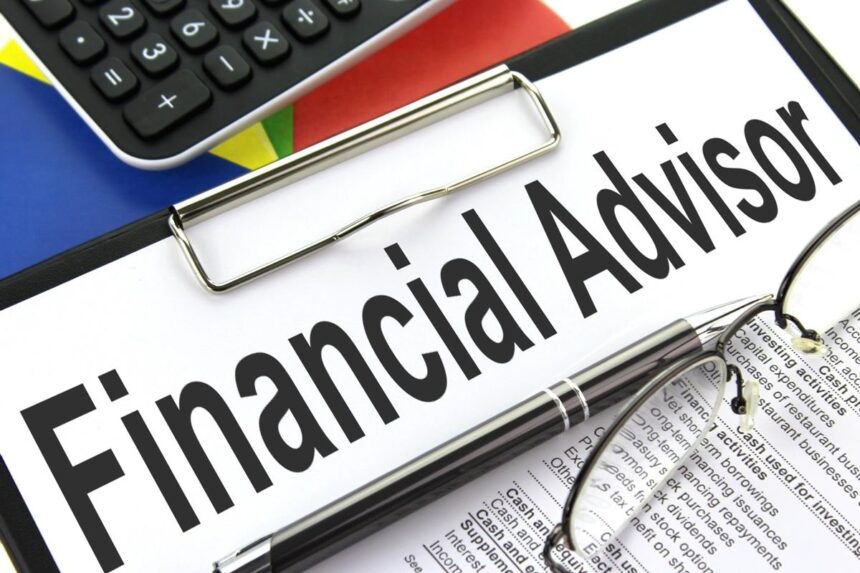In today’s fast-paced, ever-changing financial landscape, making the right investment, tax, and budgeting decisions can be overwhelming. Whether you’re planning for retirement, saving for your child’s education, or just looking to get a better handle on your finances, partnering with a reliable finance advisor can make all the difference. However, not all advisors are created equal, and finding the right one can be a crucial decision that affects your financial well-being for years to come.
So, how do you choose the right finance advisor? What qualities set great advisors apart from the rest? In this comprehensive guide, we’ll walk you through everything you need to know before committing to a long-term financial partnership.
Understanding the Role of a Finance Advisor
Before diving into the qualities to look for, it’s essential to understand what a finance advisor actually does. A finance advisor is a professional who helps individuals and organizations manage their money. Their services may include:
- Investment advice
- Retirement planning
- Tax strategies
- Estate planning
- Insurance evaluation
- Budgeting and debt management
Finance advisors can either be independent consultants or work for financial institutions. Some specialize in certain areas, while others offer comprehensive financial planning. The key is to find someone whose expertise matches your financial goals.
The Importance of a Long-Term Relationship
Financial planning isn’t a one-time event. Your needs evolve over time due to life changes such as marriage, having children, job shifts, or retirement. A long-term relationship with a trustworthy finance advisor ensures consistent advice aligned with your goals.
Having an advisor who understands your history, habits, and future plans allows for a more personalized and strategic financial approach. This is why choosing the right person from the start is essential.
Key Qualities to Look For in a Finance Advisor
1. Qualifications and Certifications
One of the first things to look for in a finance advisor is their qualifications. Reputable advisors usually hold certifications that validate their expertise, such as:
- CFP® (Certified Financial Planner) – One of the most respected designations in the industry.
- CFA® (Chartered Financial Analyst) – Specializes in investment management.
- CPA® (Certified Public Accountant) – Useful if tax planning is a significant concern.
- ChFC® (Chartered Financial Consultant) – Similar to CFP but with a slightly different course structure.
Always verify their certifications and ensure they’re in good standing with relevant regulatory bodies.
2. Experience in the Field
While academic credentials are important, real-world experience is equally crucial. A seasoned finance advisor who has weathered market fluctuations and helped clients through economic ups and downs will bring invaluable insights. Ask how long they’ve been in the field and what kind of clients they typically serve.
3. Fiduciary Responsibility
A fiduciary advisor is legally obligated to act in your best interest. This is a crucial quality that ensures your advisor won’t steer you into investments or services just for their own commission. Always ask a potential advisor, “Are you a fiduciary?” and get it in writing.
4. Transparent Fee Structure
The way a finance advisor charges for their services can vary. Common models include:
- Fee-only: Charges a flat fee, hourly rate, or percentage of assets managed.
- Commission-based: Earns money through the sale of financial products.
- Fee-based: A combination of both.
Transparency in how your advisor earns money ensures you can trust their motives. Always request a detailed breakdown of all fees.
5. Strong Communication Skills
Financial concepts can be complex. A good finance advisor should be able to break down technical jargon into understandable terms. Moreover, they should be easily accessible, return your calls promptly, and proactively update you about your financial situation.
6. Personalized Service
There’s no one-size-fits-all when it comes to financial planning. A good advisor will take time to understand your unique situation, including your goals, risk tolerance, family needs, and income levels. Beware of advisors who push generic plans or pre-made portfolios.
7. Positive Reputation and References
Word of mouth and online reviews can offer great insight. Don’t hesitate to ask for references or client testimonials. Research their reputation on sites like FINRA’s BrokerCheck, the SEC Investment Adviser Public Disclosure database, or the CFP Board website.
Types of Finance Advisors: Which One Do You Need?
There are different types of finance advisors, each specializing in unique areas:
1. Robo-Advisors
These are automated platforms that provide algorithm-driven financial planning. They are cost-effective and best for individuals with straightforward investment goals.
2. Investment Advisors
They focus primarily on asset allocation and portfolio management. Ideal for people looking to grow their wealth through strategic investments.
3. Retirement Planners
Experts in building strategies for income distribution and tax-efficiency during retirement years.
4. Comprehensive Financial Planners
Offer a holistic approach covering investments, insurance, estate planning, and taxes.
Choosing the right type of finance advisor depends on your current life stage and financial priorities.
Red Flags to Avoid
Not all advisors have your best interests at heart. Here are some warning signs:
- Pushy sales tactics for specific products
- Unclear fee structures
- Lack of credentials or unwillingness to provide them
- Unverifiable claims of past performance
- High portfolio churn (frequent buying and selling of investments)
Trust your instincts—if something feels off, it probably is.
Questions to Ask a Potential Finance Advisor
Before you commit, schedule a consultation. Here are questions you should ask:
- Are you a fiduciary?
- How are you compensated?
- What services do you offer?
- What is your investment philosophy?
- Can you provide references or client testimonials?
- How do you measure financial success?
- How often will we meet or communicate?
Their responses will give you a clearer picture of whether they’re the right fit.
How to Start the Search for the Right Finance Advisor
Start by asking for referrals from friends, family, or coworkers. You can also search through professional directories like:
- CFP Board (cfp.net)
- NAPFA (National Association of Personal Financial Advisors)
- Paladin Registry
- FeeOnlyNetwork.com
Online reviews, social media presence, and transparency on their website are also good indicators of a trustworthy advisor.
Matching Your Advisor With Your Goals
Here’s how to match an advisor’s strengths with your specific needs:
Goal: Retirement Planning
Look for someone who specializes in long-term investments and income distribution.
Goal: Paying Off Debt
Find an advisor who can create a realistic budget and debt repayment plan.
Goal: Saving for a Home
You’ll want someone skilled in short-to-mid-term financial planning.
Goal: Wealth Building
Work with someone who has a solid grasp of investment diversification and risk management.
The Role of Technology in Modern Financial Advising
Technology has revolutionized financial advising. Many advisors now use:
- Financial planning software to visualize your future
- Client portals for 24/7 access to your financial dashboard
- Robo-advisors as a complement to human advice
A tech-savvy finance advisor can offer better, faster, and more tailored solutions.
Regular Reviews and Adjustments
Once you’ve selected a finance advisor, the relationship doesn’t end there. You should schedule:
- Quarterly or semi-annual reviews
- Annual strategy sessions
- Life-event updates (e.g., new job, marriage, children)
An engaged advisor will continuously adjust your plan based on changing goals and market conditions.
Building Trust: Communication and Accountability
Trust is at the heart of any long-term financial relationship. Here’s how to nurture it:
- Open communication: Don’t hide financial truths or fears.
- Shared decision-making: Your advisor should work with you, not just tell you what to do.
- Goal tracking: You should have clear benchmarks for measuring progress.
A great finance advisor will be more than a number-cruncher; they’ll be a mentor and accountability partner.
Your Financial Future Deserves a Trusted Guide
Choosing a finance advisor is one of the most impactful decisions you’ll make for your future. With the right advisor by your side, you can feel confident navigating everything from daily budgeting to retirement planning. It’s about more than money—it’s about security, freedom, and peace of mind.
Remember, this is a long-term relationship. Take your time, do your homework, and don’t settle. Your future self will thank you.

